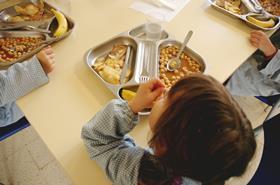
Campaigners are calling for more fruit and veg in children’s diets after govnerment data published today showed record levels of obesity for 10 and 11 year olds.
Analysis of the National Child Measurement Programme (NCMP) between 2006 to 2007 and 2016 to 2017 details trends in severe obesity for the first time. The programme captures the height and weight of over one million children in reception and Year 6 (aged 10 to 11 years) in school each year.
The findings also show stark health inequalities continue to widen. The prevalence of excess weight, obesity, overweight and severe obesity are higher in the most deprived areas compared to the least deprived.
Dr Alison Tedstone, chief nutritionist atPublic Health England, said: “The rise in severe obesity and widening health inequalities highlight why bold measures are needed to tackle this threat to our children’s health. These trends are extremely worrying and have been decades in the making – reversing them will not happen overnight.”
Several campaigns have been calling for greater intake of fruit and veg, across all generations, with school age groups seen as a key time to develop healthy eating habits.
Last week Ofsted came under fire for suggesting there was no link between school healthy eating campaings and child obesity rates.
Sustain’s Children’s Food Campaign co-ordinator Barbara Crowthersaid the Ofsted report on child obesity was “hugely disappointing”.
Responding to the latest findings, Crowther said: “The latest figures show just how much we are letting our children down, allowing an unhealthy food culture to persist in which junk food and snacking are no longer just treats but often a daily norm. It’s shocking to see that levels of obesity double from age 5 to age 11, showing just how important those primary school years are.
“The relentless bombardment of kids with junk food advertising not just on TV, but online, in games and apps, with child-friendly cartoon characters emblazoned on so many unhealthy foods, and in-your-face promotions on multipacks of snacks and confectionery everywhere we go, all makeit so much harder for parents and schools to champion a healthy eating culture for children.
“These latest findings show just how critical it is for the Government now to step in and take a hard line on reversing these trends, and adopting policies that make healthy food the easy, affordable choice.”
The British Nutrition Foundation carried out its own survey of 5000 pupils, for Healthy Eating Week, which showed that despite fruit being the most popular snack (54 per cent) junk food took up the rest of snack occasions.
Bridget Benelam, nutrition communications manager at British Nutrition Foundation said: “There is no easy way to address excess weight in children but sugar and calorie reduction in foods and drinks, making healthier choices easier for families, and encouraging healthy policies and education in schools are all things that can contribute to turning the tide of the current obesity epidemic.”






No comments yet